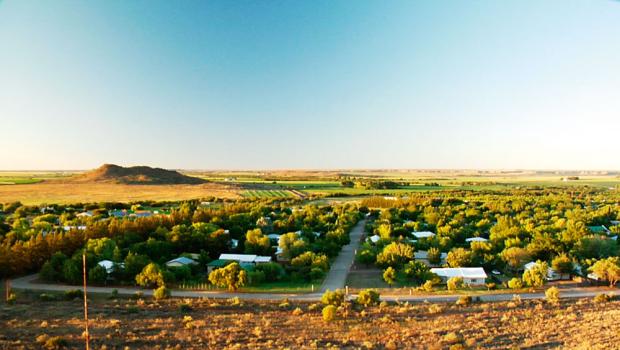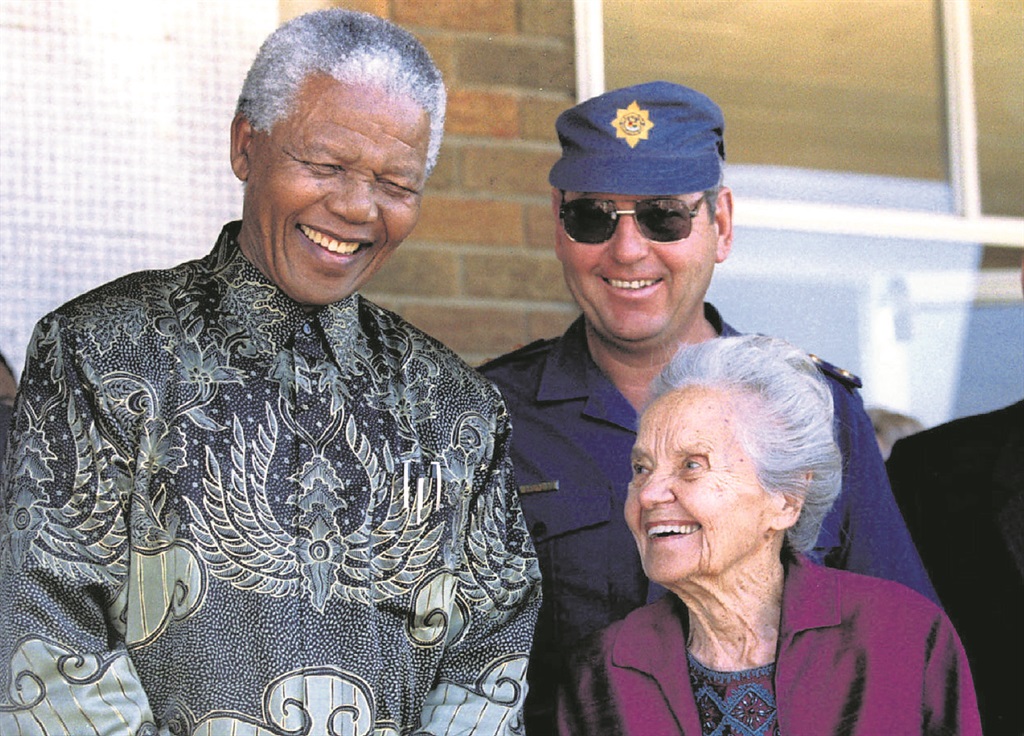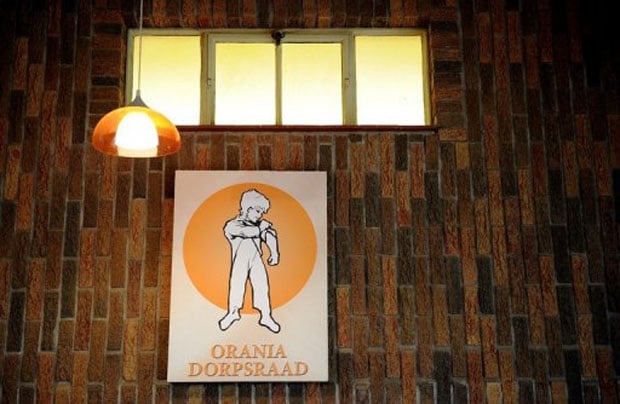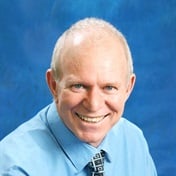
Carel Boshoff IV is eloquent, intelligent and a stimulating conversationalist. As "president" of the Orania Movement it is his task to promote and protect the interests of Orania, the Afrikaner settlement near Hopetown in the Northen Cape established before the advent of democracy.
Last week Boshoff, a grandchild of apartheid premier Hendrik Verwoerd and a former member of the Northern Cape's legislature for the Freedom Front Plus, issued a statement addressed to "Afrikaner decisionmakers" in which he argues that the time to pursue the ideal of an own Afrikaner territory – a volkstaat, in 1990s parlance – has come.
Boshoff argues that race relations are deteriorating, as illustrated by the debate on land expropriation and the recent "witch hunt" targeting the Schweizer-Reneke teacher, and says it seems that the ideal of a non-racial society remains a mirage. He also questions the construct of South Africa and believes the country consists of divergent language and cultural groups, each with its own demands and needs. South Africa and South Africans don't really exist, he seems to believe.
Carel Boshoff, president of the Orania Beweging. Photo: Emile Hendricks
These arguments are increasingly bubbling to the surface in various Afrikaans fora ahead of the election, with more and more people questioning the longevity and resilience of the democratic settlement amidst mind-numbing revelations of state capture and corruption, deteriorating service delivery, increased crime and social tension around education, affirmative action and race.
On Tuesday Peter Marais, a colourful and controversial loose-cannon of a politician, was unveiled as the Freedom Front Plus's candidate for premier of the Western Cape. He promptly said that he will work towards "self-determination" and that his ideas of a more federal state are compatible with his new party's wish for a confederation (which refers to a constitutional entity that consists of independent units or states, reminiscent of Verwoerd's "constellation of South African states").
According to its mission the FF Plus "remains irrevocably committed to realisation of communities' internationally recognised rights to self-determination, territorial or otherwise, specifially for the Afrikaner…" Marais, on Wednesday, said if he becomes premier he will call a plebiscite to determine whether the Western Cape should become independent.
In August 1995, Nelson Mandela (left) met with Betsie Verwoerd (right), widow of the architect of apartheid in the white enclave of Orania in the Karoo.
And Solidarity, with AfriForum as one of its largest constituent members, has under the leadership of Flip Buys quietly and determinedly been creating its own Afrikaner world, with the movement (as it's known) providing services and support to its members ranging from security and insurance to media and education and almost everything inbetween.
Solidarity and its leaders speak of "self-determination" but stop short of advocating for secession or a "volkstaat", although there's enough ambivalence in their statements to ensure every audience hears what it wants. (Solidarity and AfriForum's leaders maintain close ties to Orania.) It has even commissioned research to try and predict in which cities and towns Afrikaners will form a critical mass in future so that the organisation can gear itself towards it.
A statue of Hendrik Verwoerd in the town of Orania. Photo: Jens Friis
The high point of the volkstaat idea was in 1994 when Thabo Mbeki facilitated the participation of the Freedom Front in the election under the leadership of Constand Viljoen, a former commander of the South African Defence Force, and an agreement that the final constitution would reflect the possibility of self-determination. Indeed, article 235 of the Constitution does provide for a form of territorial self-determination if enabled by national legislation.
After the election a combination of Afrikaner division and realpolitik put paid to the idea of a volkstaat and Orania became an oddity of the social landscape, with talk of an own Afrikaner territory limited to right-wing chatrooms on the internet and fringe groups.
But the weakening of the state, coupled with the ANC's decline and revelations of large-scale corruption, has seemingly revived talk about self-determination. This seemingly signals the end of the 1994 accord and the final failure of Project South Africa.
Solidarity and AfriForum are the most sophisticated and nuanced exponents of the idea of self-determination and have been conditioning their supporters and those sympathetic to their cause for years. Although the organisations seemingly aren't actively investigating "own territory", it is advocating for a form of cultural and language self-determination, with some of its leading ideologists questioning the validity of the state, like Boshoff does.
Where the volkstaat idea might have been a crude, racist kneejerk to the inevitibility of democracy in the early 1990s, it has over time evolved into a credible and constitutionally acceptable political solution for some Afrikaners. Solidarity and AfriForum's leaders have linked up with a self-governing German-speaking community in Italy for philosophical succour, while the FF Plus have been trumpeting their membership of an organisation called the Unrepresented Nations and Peoples Organisation based in Geneva.
The fervour with which self-determination is being discussed in Afrikaner circles could be a function of the global rise of nationalism and right-wing politics, with a creeping conservatism, opposition to globalisation and an animosity towards "the other" gaining a foothold.
How widespread that debate is and how much support it has however is unclear. But when push came to shove (read: Bophuthatswana), Afrikaners by and large bought into the democratic dispensation and rejected the politics of separate development. Today the FF Plus remains stuck with less than 1% of electoral support and the Solidarity/AfriForum complex seem reluctant to test their support in an election.
Boshoff once explained his philosophy during a visit to Orania, arguing: "We'll remain within South Africa if we must, but go outside it if we can." ("Ons sal binne Suid-Afrika bly as dit moet, maar buite as ons kan.")
For now, they have no choice.




 Publications
Publications
 Partners
Partners



























